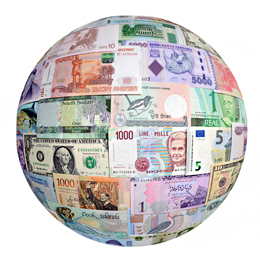 One way to get ahead of trends, in my opinion, is to take basic assumptions that everyone just knows are true and think about what the world would be like if, in fact, those assumptions turned out to be wrong.
One way to get ahead of trends, in my opinion, is to take basic assumptions that everyone just knows are true and think about what the world would be like if, in fact, those assumptions turned out to be wrong.
Since returning from the Goldman Sachs conference yesterday, I’ve been thinking about what was said there—as well as what wasn't so much said as assumed.
Underlying most of the presentations was the fundamental assumption that the present, globalized, economic order will persist. Over the past 25 years and more, we have seen China, India, and the former Soviet Union move into the world economy, with massive effects. We have seen global trade open up, to the benefit of billions. We have seen the European Union and the eurozone come into being and, until the past five years, prosper.
The world economy is the most integrated it’s been in, well, ever.
But what if things are changing?
Much of what drove increased integration was the promise—largely fulfilled—of prosperity. China got rich, Europe let the southern economies borrow at German low interest rates, and here in the U.S., everyone could borrow and spend, fueled by rising housing values. As the pie got bigger, there was no incentive to fight.
Now that things are tougher economically, people and countries are getting more self-interested. Protectionism is on the rise globally, including here in the U.S.:
- A major trade deal between the U.S. and Europe is on the rocks, due largely to internal European problems.
- The tension between France and Germany is rising, due to conflicting economic priorities.
- U.S. companies and others continue to face increasing problems doing business in China, as the government favors domestic firms.
- Japan has worked to drive down its currency to give its manufacturers an edge in world markets, and it’s not the only one.
The list goes on and on, and unless things get markedly better around the world, it will only grow.
Right now, the idea that globalization will continue at least at current levels seems obvious. When you look at the details, however, you can see trends moving the other way:
- A Russian lawmaker recently commented that foreign companies might have their assets confiscated.
- China, by imposing huge fines on GlaxoSmithKline and foreign auto companies, hasn't formally confiscated assets but might as well have.
- Even in the U.S., huge fines imposed on foreign banks could be seen in the same light, although domestic banks have faced similar consequences.
If you’re looking for a base assumption to watch out for, I would suggest that the untouchability of globalization is a big one. We can already see the trends turning, and barring a substantial global economic improvement, that should continue.
Next time, we’ll talk about what such a shift could mean for the U.S. economy and investors.


 Print
Print

